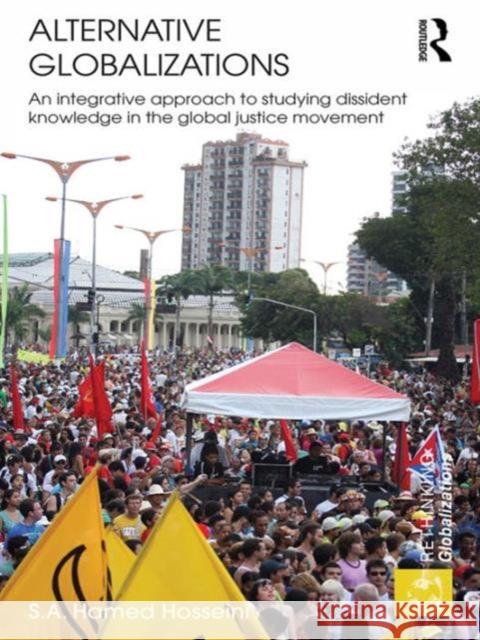Alternative Globalizations: An Integrative Approach to Studying Dissident Knowledge in the Global Justice Movement » książka
Alternative Globalizations: An Integrative Approach to Studying Dissident Knowledge in the Global Justice Movement
ISBN-13: 9780415494762 / Angielski / Twarda / 2009 / 288 str.
Alternative Globalizations: An Integrative Approach to Studying Dissident Knowledge in the Global Justice Movement
ISBN-13: 9780415494762 / Angielski / Twarda / 2009 / 288 str.
(netto: 699,68 VAT: 5%)
Najniższa cena z 30 dni: 705,23
ok. 22 dni roboczych.
Darmowa dostawa!
Are the growing oppositions to neoliberal market globalism (especially in the aftermath of global economic meltdown) able to develop meaningful alternative ideologies? Is there any substantial alternative to the world capitalist system on the horizon? How would the ideologies and ideas address the dire dilemmas of economy vs. ecology, redistribution vs. recognition, global vs. local, reform vs. revolution etc.? This book answers such important questions by examining the intellectual structure of the so-called 'anti-globalization' or 'global justice' movement. It explores the formation and transformation of ideas, identities, and solidarities in the movement. The book also develops an analytical model to explain the movement's ideational novelties and continuities in terms of both activist social experiences and global social changes. Hosseini develops new sociological concepts, integrates opposing theoretical perspectives into one approach, and addresses the gap between critical theories and activist practices. Through this endeavor, he discovers an emerging mode of consciousness which is characterized by its cross-identity and cross-ideological nature. This is a live but quiet global revolution. Drawing on a variety of disciplines, this gourd-breaking volume will be of interest to students and scholars of global studies, political sciences, sociology and social movement studies.
This book explores the formation and transformation of ideas, identities, and solidarities in the global opposition to the corporate-led globalization and its ideological basis, neo-liberalism.
It looks into the intellectual structure of the so-called ‘anti-globalization movement’ by taking a new cognitive approach. The movement consists of a fresh range of socio-political unrests, mobilizations, coalitions, networks and groups whose causes link them to the context of current globalization. The main common causes are related to the international financial institutions, free trade agreements, the World Bank and regional banks’ plans, related domestic and foreign policy adjustments such as privatization, tax cuts and cutbacks, multinational corporations, and the recent War on Terror issues.
By analysing a significant number of online and offline documents brought out by the movement activists and scholarly studies, the book examines the capacity of the movement for developing alternative ideas, identities, solidarities, and rationalities.
It will be of interest to students and scholars of global and international studies, international relations, sociology, political sciences, social psychology, as well as courses on particular themes such as globalization, global social movements, and global consciousness











